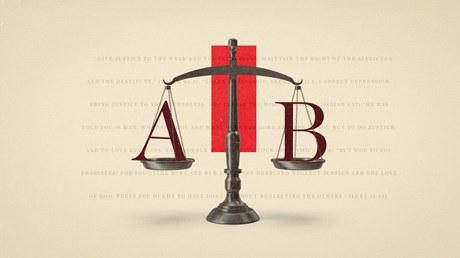Thaddeus Williams asks good questions about contemporary zeal for change. But there are questions to ask of his critique as well.

When it comes to tackling injustice, many Christians have an impulse to push harder and faster. Eager to hit the accelerator, they don’t always pause to consider whether their zeal is prudent or proportionate.
This is one thing to commend about the measured approach taken by Thaddeus K. Williams in Confronting Injustice without Compromising Truth: 12 Questions Christian Should Ask About Social Justice. Williams, a theology professor at Biola University, seeks to lay a Christian foundation for programs of social justice while critiquing the excesses and extrabiblical emphases of secular “social justice.” He encourages us not to slam on the breaks but to slow down and engage in critical self-reflection before diving headfirst into the latest cause. Justice advocates often put up their defense shields when confronted with arguments like these. But Williams invites us to come and reason together, laying down our tribal and ideological weapons.
As Williams affirms at the outset, “Social justice is not optional for the Christian.” The question is, which type of social justice? Williams distinguishes between what he calls “Social Justice A” (biblical social justice) and “Social Justice B” (unbiblical social justice), and the book proposes 12 questions aimed at helping believers discern between the two rivals. For instance, does our vision of social justice take seriously the godhood of God? Does it acknowledge the image of God in all people? Does it encourage love, peace, and patience or suspicion, division, and rage?
Williams affirms the reality of racism and systemic injustice, pointing to well-documented disparities in housing and the criminal justice system as examples. But ...
from Christianity Today Magazine
via


.gif)

.gif)
.gif)
